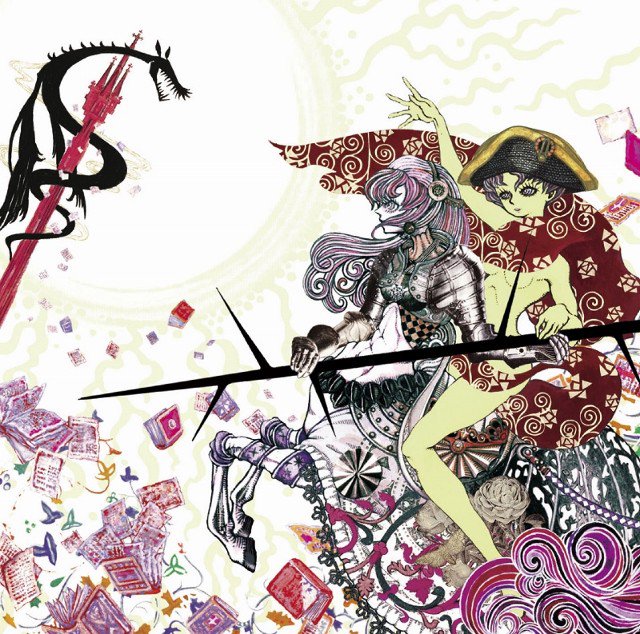

I find it really mean when the fly is constantly circling and landing on me instead of the amply provided garbage. It’s like, are you really saying I’m the biggest piece of trash here?


I find it really mean when the fly is constantly circling and landing on me instead of the amply provided garbage. It’s like, are you really saying I’m the biggest piece of trash here?


Same for me. Only one page and also, searching for communities and other clickable buttons (like the toggles between posts/comments or local/subscribed) don’t work anymore.


I need, like, a shirt saying “I read Torrey Peters before it was cool”


It’s a nice addition to the weekly /r/curatedtumblr transmisogyny post


I believe character descriptions became a big thing in the time of physiognomy – when Balzac narrates someone’s physical appearance, he wants you to extrapolate the character’s personality from that. Physiognomy fell out of fashion and if there is no other motivation to provide a description, like signalling someone’s class position or injecting a bit of lyricism, it’s simply economical to leave it out. To provide a counter-example, Mary Gaitskill always writes exactly one paragraph of description in her short stories which you can just skip because it’s not properly integrated into the story as a whole.


I just got Dragon Age: Inquisition and to be honest, it’s been rather frustrating so far. The controls/camera and interface are obviously made for a gamepad and the whole MMO vibe – endless fetch quests in wide, empty spaces; rogue and wizard are the classes that do damage while warriors are supposed to take the heat – is bothering me. And common equipment at level 7 being infinitely better than rare items at level 5 is just depressing. Still, I’m hoping that the story and characters pick up soon.


Exactly! I think part of it is a, in my view, mistaken historical realism where authors think fantasy should be based on the middle ages when, in reality, the better part of our modern fantasy genre derives from post-1600 literature. Like, the rise of the bourgeoisie and decline of feudalism is the primary social context for all of this, I think.


Any representation of feudal ruling classes. Maybe I’m overdoing it with the class hatred a bit, but I can’t watch nobles cavorting around and not feel an instinctive revulsion. It’s even worse when, in fantasy, we’re required to care about the machinations of court intrigues as if that’s a real form of politics. One thing I do like about many standard fantasy settings, like that of Pathfinder, therefore is that they usually have a modern conception of class and an abundance of republics; especially the whole idea of adventurers as individuals outside of society but still integral to it has a lot of potential I feel. Basically, I just don’t want any more fantasy stories about good kings and evil kings.


I didn’t know they had a foundation. Turns out they’re even renting a unit (probably just a mailbox) in a nice, modern office complex. Somehow, it nevertheless reminds me of those photos of the Something Awful offices…


What, do you have something against homosexuality?


[Nathan Fielder voice] Oh, okay.


No surprise there. Everyone involved with publishing Angela Nagle’s book should face some serious questions about their political convictions. Also, I didn’t know what Rockhill what’s up to now, but I guess everyone who blames French academics for the failure of the left ends up in the same place eventually.


What a cute little rat! They’re really the sweetest-looking pets.


This isn’t propaganda, exactly, but it has the vibes of anti-Marxist misinformation (is that a thing?): Character mask. It’s absolutely incomprehensible and reads like an essay by someone obsessed with the history and theory of Marxism in a weird, unproductive way (you know those types). Naturally, it has remained essentially unchanged for a decade. Bonus points if anyone can figure out what micro-ideology its author is pushing, because I really can’t tell.


Do you have “yankee” in Norwegian? A lot of Americans don’t like being called that for some reason


It’s a very good book, all in all. I still don’t think anything has really surpassed it in terms of being a book-length theorization of the specific misogyny faced by transfemmes – you can find scattered critiques on the internet, mostly bad ones, but I just don’t think posts really matter in comparison with books. And yes, it is only being ignored because, frankly, society at large hates us and the idea that we face a specific kind of oppression, even though it’s blindingly obvious, is very hurtful to the egos of a lot of people who consider themselves leftists.


I’d just like to know one thing: Is it like Schoenbrun’s last movie, where there are all those long, slow scenes without much dialogue or plot? I’ll watch it anyway, but I’d like to know if it’s maybe a bit less strenuous to watch.


For starters, the protagonist lives as a male for the first 20 years of their life, and in the course of the novel they have a long-term relationship with a cis lesbian, as a woman, that includes discussions of whether they truly are a woman or if they were just tricking her. At other times, they have casual sex as a man with other men, but never anything deeper. Also, throughout, the narration only ever calls the main character “Paul” and “he”, so their female identities always seem more precarious than their male ones, even though they seem genuinely happy and more fulfilled in them, which is very transfem in my view.
Any chance you’re on iOS? That’s where the bug mostly happens, but no one knows why. I can recommend using next.hexbear.net for now.
Edit: Yeah, I’m also on Firefox. I wonder why it works fine for everyone else.